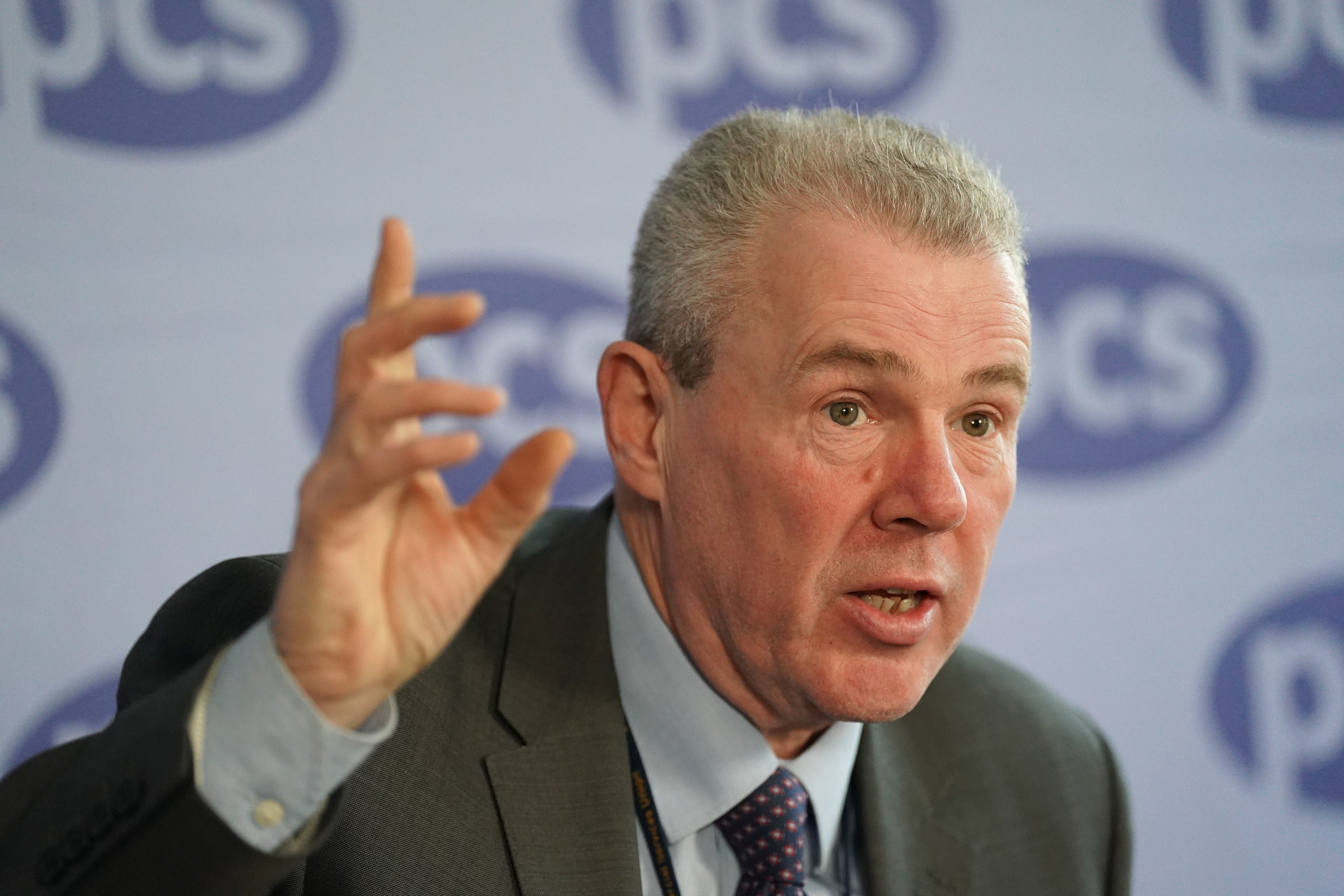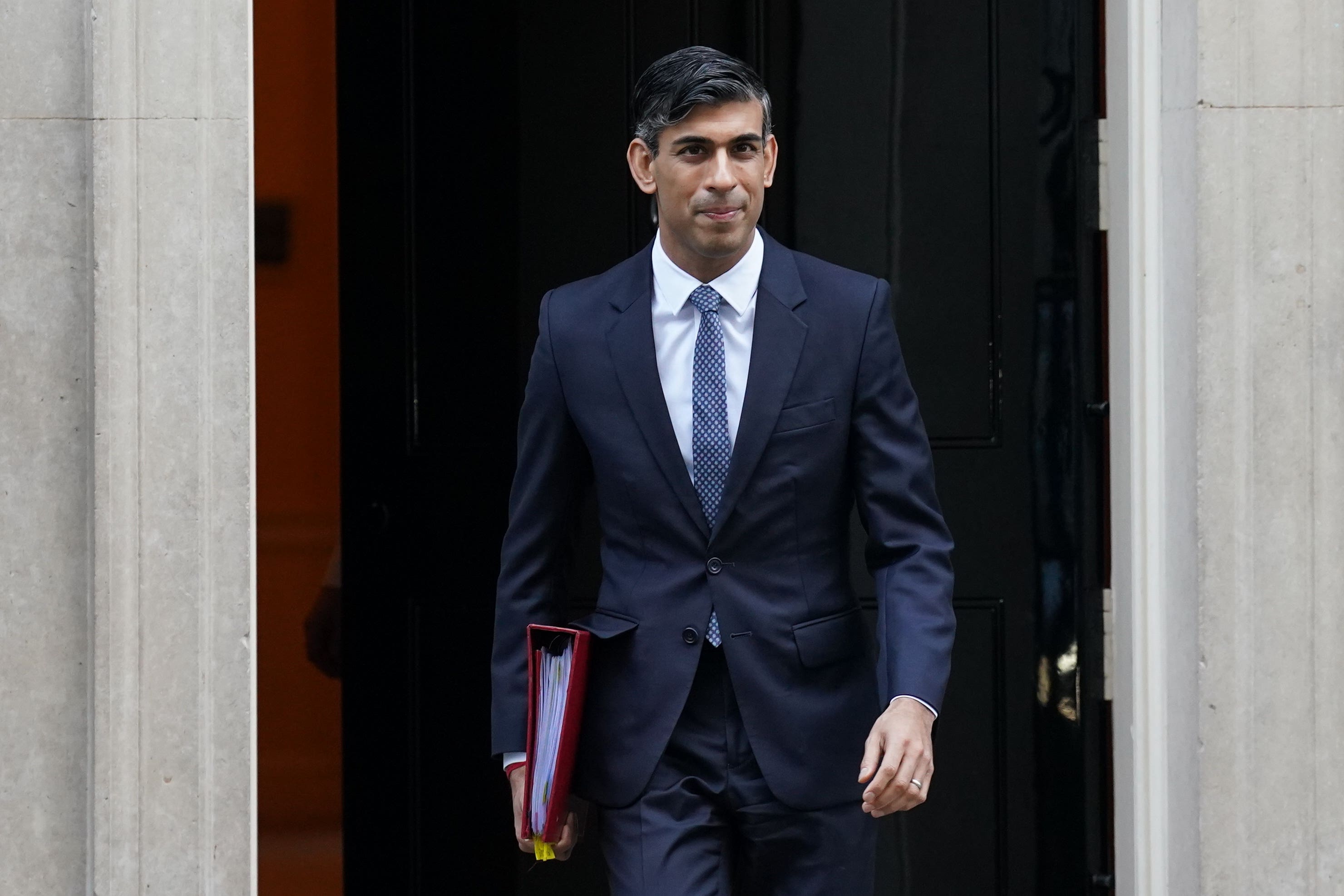
Rishi Sunak’s government should be ready for a “significant” escalation in synchronised strikes across the UK from March, the leader of the country’s largest civil service union has warned.
Mark Serwotka, general secretary of the Public and Commercial Services (PCS) union, told The Independent he expected more unions would join a day of industrial action on 1 February which will see 100,000 of his members walk out.
“I’m very confident we’ll not be the only union on strike that day,” he said on the February walkouts.
“What you’ll see as we go into March is a much bigger chance that coordinated strike action by unions will grow quite significantly. Unions will work much more closely together.”
Mr Serwotka also warned Mr Sunak that the Conservatives could pay a price at the 2024 general election for their refusal to negotiate on current pay disputes – insisting that unions could keep on striking throughout 2023.
“I think potentially these disputes could drag on throughout the year unless the government does something [on pay],” he said. “I don’t think anyone is going to give up because we can’t afford to give up.”
The union chief added: “If the government believes continued disruption will mean people will turn against workers, I think they’re making a massive misjudgement. Ultimately they will have to explain why we’ve had more industrial unrest than we’ve had for years – they’ll have to explain it at the next election.”
More than 100,000 civil servants across 124 government departments and agencies, including the Home Office, Department for Work and Pensions and Department for Transport will strike on 1 February.

Walkouts by Border Force staff will see disruption at almost every airport and port in the country. That includes the Port of Dover, where Mr Serwortka warned of “significant” problems since National Highways staff and other civil servants used as cover during action taken by the union over Christmas will also be on strike.
“It will be very disruptive. It will be significant disruption across the board. We will also be announcing further, long-term strikes. It will get worse unless the government do something on pay now,” said the PCS chief.
Union leaders met at TUC headquarters this week to discuss the possibility that the 1 February “day of action” could include some coordinated strikes as well as rallies, as they push back against government plans to enforce minimum cover levels during walkouts.
However, unions sources played down the prospect of anything resembling a so-called “general strike”. Health unions are understood to fear losing public support if massive disruption is synchronised across the public sector.
After the meeting, Pat Cullen, general secretary of the Royal College of Nursing, said: “Our dispute is about the nursing profession and doing a deal for nursing is my only priority.”

There is renewed optimism that the NHS pay dispute can be resolved, with health secretary Steve Barclay said to have acknowledged the need to find more money for the current year. But chancellor Jeremy Hunt is thought to be reluctant to sanction more funds from the Treasury, so Mr Barclay may have to consider cuts to his own department’s budget.
Other union leaders remain frustrated at the attempt to kick the pay disputes “into the long grass” by trying to focus on the review process for the 2023-24 financial year.
Mr Serwotka described a meeting this week with Cabinet Office minister Jeremy Quin as a “total farce” since the government insisted on talking only about next year’s pay. Civil servants were handed an average pay rise of only 2 per cent this year, with the PCS pushing for at least 10 per cent.

“If they believe they can play the long game they’re wrong. Just telling people, ‘wait until next [financial] year and see what happens’, hoping inflation will drop and hoping everyone will accept less is not a strategy,” said Mr Serwotka. “We’re not going to give up and go away.”
He added: “We won’t be ground down because we can’t afford it. It’s not a question of wanting it to grind out, it’s a question of there being no alternative. Because otherwise, you condemn yourself to years of continuing poverty.”
Rail union leaders at the RMT and TSSA unions have agreed to work with employers to hammer out a revised pay offer to put to members after progress to resolve a long-running dispute was made in meetings this week.
There is still the possibility of widespread strike disruption to schools in the months ahead. The NASUWT union failed to meet the threshold of support needed for strike action, but other teaching unions are awaiting the result of ballots.
More than 70,000 university staff will walk out for 18 days during February and March, the University and College Union announced this week.







